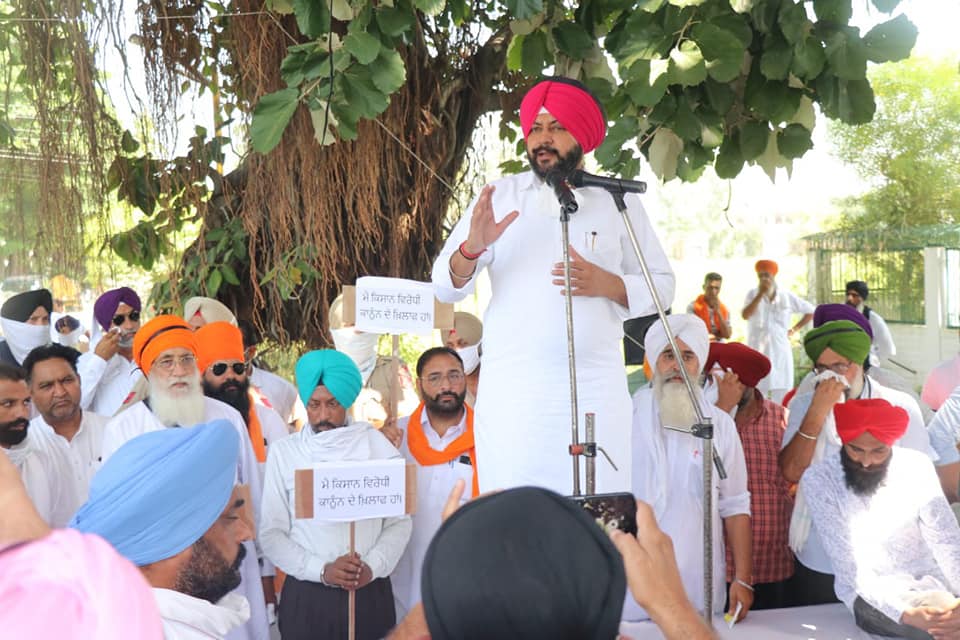Summary
The Indian parliament recently passed far-reaching agricultural reforms reducing the control of states in agricultural marketing. While these promise better economic prospects for farmers, political protests abound over lesser state involvement, deeper corporate control of agriculture and fear of withdrawal of minimum support price.
Unruly scenes and disorder prevailed, as two major farm sector reform Bills were approved by the Parliament last week. The Farmer’s Produce Trade and Commerce (Promotion and Facilitation) Bill, 2020, and The Farmers (Empowerment and Protection) Agreement on Price Assurance and Farm Services Bill, 2020, are on their way to obtaining Presidential assent for becoming laws. The bills have generated political unrest as they undermine the state control over agricultural marketing and disrupt the economics and politics thriving around such control for decades.
Moving Beyond Agriculture Produce Marketing Committees
Indian farmers have been selling their produce for several years in markets regulated by the Agriculture Produce and Marketing Committee (APMC) Acts of various states. The produce is sold to commission agents appointed by state governments under these acts. The APMC Acts have been the instrument of control exercised by state governments to monopolise the buying and selling of agricultural produce. Farmers function within this restrictive prism without the opportunity of selling elsewhere.
The Farmer’s Produce Trade and Commerce (Promotion and Facilitation) Bill, 2020, allows farmers to sell outside APMC markets. The bill removes restrictions on intra- and inter-state trade in agricultural products enabling farmers of states governed by the APMC Acts to step beyond these markets and earn higher returns by selling elsewhere. This should enable greater flow of agricultural produce from surplus to deficient states promoting a national agricultural market.
With APMC markets no longer being the sole choice for farmers, states suffer economically and politically. Economically, they lose taxes collected from sellers mandated by the APMCs to buy from farmers. These are substantial for a state like Punjab, which is spearheading protests against the reforms. Politically, over the years, the APMC Acts have enabled and sustained a self-reinforcing patronage culture. Formal intermediaries between governments and farmers have flourished, acting as agents for interface between political parties and farmers. The structure can change significantly if more and more farmers give up on the APMCs.
Deeper Corporate Control
Political agitation has also been fuelled by prospects of business interests of large corporate houses dominating agricultural trade as a result of the policy changes. The Farmers (Empowerment and Protection) Agreement on Price Assurance and Farm Services Bill, 2020, encourages contract farming. It enables farmers to tie up directly with businesses, exporters and retailers to supply produce at pre-determined prices. Apart from assured prices, the changes enable the transfer of risks from the farmer to the buyer, safeguarding the former against unanticipated setbacks to production, and enabling access to quality inputs.
Contract farming opportunities can encourage more farmers inclined to move away from APMC markets to tie-up with businesses, precipitating economic and political reverses for state governments. The concern has been aggravated by recent investments of foreign retail and tech firms (for example, Amazon, Walmart and Facebook) in the Indian telecom and retail businesses, like Reliance Jio and Flipkart. Harsimrat Kaur Badal, the resigning minister from the Union Cabinet belonging to Bharatiya Janata Party’s ally, Shiromoni Akali Dal, alluded to Reliance Jio’s success wherein it first dropped telecommunication prices and raised them later after acquiring a significant number of customers. The same could be repeated in agriculture.
Discontinuation of the Minimum Support Price
There are growing concerns among farmer groups of these changes being precursors to the discontinuation of the minimum support price (MSP) scheme for central government procurement of food grains and agricultural products. If farmers get better prices by engaging with businesses, and food supplies across the country stabilise from free movement allowed by the amendment of the Essential Commodities Act of 1955, the economic justification of the MSPs, in terms of providing farmers assured prices on their produce, greatly reduces. The Centre might, over time, be tempted to discontinue the MSPs, given the high subsidies they entail for the exchequer, in addition to the mounting costs of storing grains. Such an outcome will be significant for states like Punjab and Haryana, where large land-holding farmers have benefitted for decades by offloading their produce at pre-determined MSPs.
The Narendra Modi government has assured states on the retention of the APMCs and persistence with the MSPs. Nonetheless, the reforms clearly limit state government monopolies over agricultural marketing for decades. They also disturb the rent-seeking incentive structure that has consolidated over years in rural India around farm product markets. Whether the changes will significantly improve prospects of farmers or not, will depend on how they respond to the changes and the returns they obtain over time.
. . . . .
Dr Amitendu Palit is a Senior Research Fellow and Research Lead (Trade and Economic Policy) at the Institute of South Asian Studies (ISAS), an autonomous research institute at the National University of Singapore (NUS). He can be contacted at isasap@nus.edu.sg. The author bears full responsibility for the facts cited and opinions expressed in this paper.
Photo credit: Facebook/Indian National Congress – Punjab
-
 More From :
More From :
-
 Tags :
Tags :
-
 Download PDF
Download PDF



